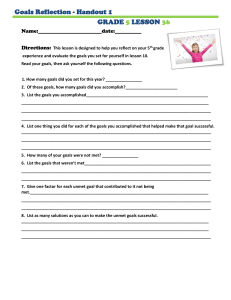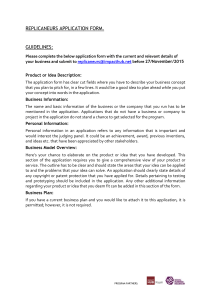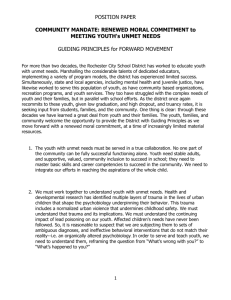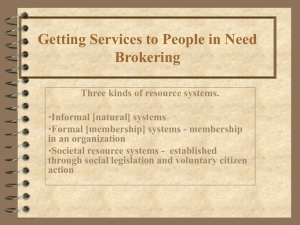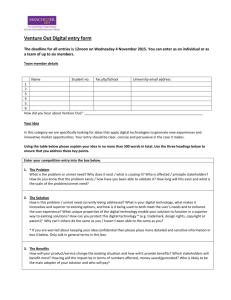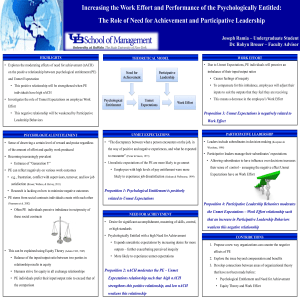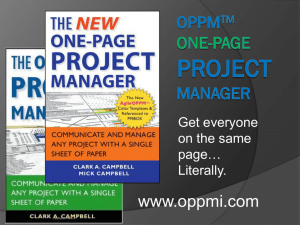360 by 360 Competion - 360by360 Competition
advertisement
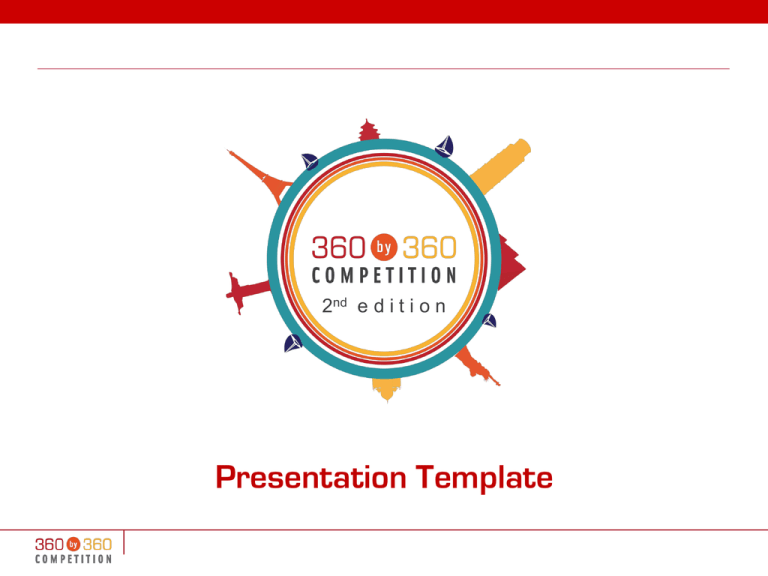
2nd e d i t i o n Presentation Template Startup Name • Company name, logo, claim/payoff • One-sentence summary of your business • Company Website and Contacts Overview 2-3 sentences that define your innovative startup • What problem are you solving for customers /unmet need? • What is your unique selling proposition and what is the innovation? • Market size: How many potential customers are there? How much potential revenue is possible? • Why will you succeed? • Some success metrics so far (proof of concept, existing customers, investors, market research, etc.) • Investment needed The Team • Co-Founders and management team profiles – Roles – Key competences and relevant background • Advisors profiles – Roles – Key competences and relevant background The Problem/Unmet Need • Description of the problem that your customer has • Is there an unmet need by existing product/services? • Be clear on its relevance and bring measurable evidence if possible (data, pictures) Your Innovative Solution (i.e. The Product/Service) • Describe your product/service • Explain why it offers a solution to the customer’s pain/unmet need • Describe clearly where the innovation is • What is the Unique Selling Proposition? • Be exhaustive but coincise, use pictures if possible The Market • What is the market that your product addresses? • Identify specific target segments, don’t be generic! • What is the value of the target market in terms of annual revenues (Total Available Market) • Current trends in the specific segment and favorable dynamics Competitive Advantages • What are the competitive advantages of your product – – – – Technology leap and breakthrough innovation? Higher quality and greater value for the customer? Cost reduction? Other advantages? • Is this competitive advantage defendable and durable? • Why will customers care? Why will customers choose your product or service, instead of your competitor’s? Competitive Landscape • What alternatives exist? i.e. How do customers solve the problem today, without your product or service? • Identify main competitors and describe shortly their position in the market • How does your product compare to the competitive ones? • Provide a clear analysis of your competitive position identifying key dimensions and showing where your product is strong and weak (trying to be objective) – a comparative chart is helpful! • Be well documented on competition, honest and exhaustive Business Model • • • • Who do I sell to? How do I make money? Revenue streams and pricing model One-time or recurring payment? Estimate Customer LifeTimeValue Go-to-Market Strategy • • • • • • • Who are my target customers? How can I reach my target market? Marketing efforts and channels Key Partnerships Sales Team Structure Distribution dynamics Geographical focus Financial Projections • Forecast a simple but coherent P&L for 3-5 years estimating key components on Revenues and Costs and Margins • Identify Key Business Metrics and be sure to appropriately estimate them • When will your business reach break-even? • Don’t exagerate on YoY Revenues growth and do not underestimate costs • Be realistic on assumptions but also ambitious! • Don’t forget about CashFlow • Don’t get lost in overly complicated financial models! What you have done so far • Describe the progress done so far – Main milestones reached – Beta product / Industrial prototype – Tests run and proof of concept – Any external validation from customers? • Bring evidence of results through metrics • Money invested in the company do far – Bootstrapping, Family & Friends, Business Angels? Investment need and use of proceeds • How much money do you need to get the product in the market or reach break-even? • How will you use that money?
